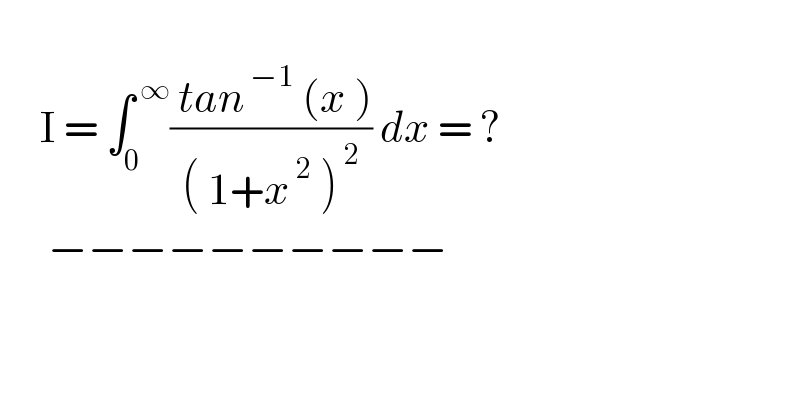
Question and Answers Forum
Question Number 162811 by mnjuly1970 last updated on 01/Jan/22

Answered by amin96 last updated on 01/Jan/22
![arctg(x)=t x=tg(t) (dt/dx)=(1/(x^2 +1)) t[(π/2):0] I=∫_0 ^(π/2) (t/((1+x^2 )))dt=∫_0 ^(π/2) (t/(1+tg^2 (t)))dt=∫_0 ^(π/2) tcos^2 (t)dt IBP t=u du=dt v=((2t+sin(2t))/4) I=[t((t/2)+((sin(2t))/4))]_0 ^(π/2) −∫_0 ^(π/2) ((t/2)+((sin(2t))/4))dt= =(π^2 /8)−[(t^2 /4)]_0 ^(π/2) −(1/4)∫_0 ^(π/2) sin(2t)dt_(1) =(π^2 /8)−(π^2 /(16))−(1/4)= =(π^2 /(16))−(1/4)](Q162820.png)
Commented by mnjuly1970 last updated on 01/Jan/22

Commented by amin96 last updated on 01/Jan/22

Commented by mnjuly1970 last updated on 01/Jan/22

